Cookbook Review: Suzanne Husseini’s WHEN SUZANNE COOKS
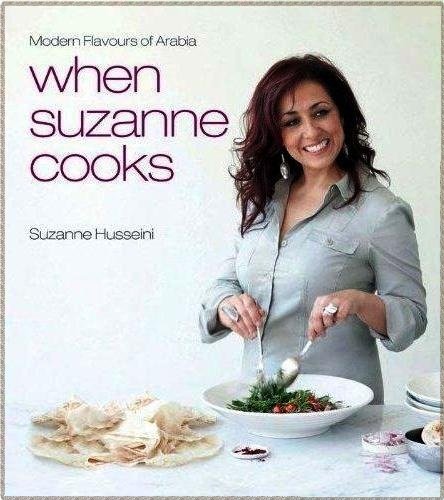 I first heard about Suzanne Husseini and her cookbook in an article in the National newspaper. What struck me were her stories of her Arab-Canadian childhood and her philosophy of cooking—it’s not about perfection, but the love imparted through food.
I first heard about Suzanne Husseini and her cookbook in an article in the National newspaper. What struck me were her stories of her Arab-Canadian childhood and her philosophy of cooking—it’s not about perfection, but the love imparted through food.
When her cookbook was released, I went to Magrudy’s and looked at its cover. I thought: Do I really need another Arabic cookbook? Honestly now? I already had a dozen in my kitchen, mostly collecting dust.
I opened the book and looked at every page. I scanned every recipe. I studied every photograph. When I reached the end, I decided I had to have it.
Now I’ve had the cookbook about six months. I’ve made about fifteen recipes from it, nearly all with great success. Some of the recipes, such as the Green Salad with Fried Halloumi and Pomegranate Dressing, are now part of my weekly repertoire. My favorite is the Knafe Pastry with Cheese, a dessert I’ve never been able to pull off until now.
This cookbook does not focus on a particular national cuisine, such as Lebanese. Husseini’s cuisine is broader, encompassing Eastern Mediterranean, North Africa and the Middle East. Nor does the cookbook obey strictly traditional recipes. The cookbook’s subtitle is “Modern Flavors of Arabia.” Most of the recipes have a twist to them. For example, the Baba Ghanouj includes toasted walnuts. The Spicy Chicken Wings call for pomegranate molasses. The Date Pastries are made in the shape of hearts.
What I appreciate most about this cookbook is the photography. There is a photo for every recipe, and the food photography is simply stunning. For me, photographs are vital for preparing foreign foods. I need to see what the dish is. I need to know if I’ve achieved the right end result. Most importantly, I need to feel inspired. After all, cooking is a lot of work, and I need motivation!
Did I mention that Suzanne Husseini is a Middle Eastern TV chef? She’s been a chef on various regional TV shows. I’ve never seen her on TV, but I finally got to see her in action at the Emirates Festival of Literature where she taught her recipes like a food ambassador. As she cooked, she told food stories from her childhood and taught the audience Arabic words. You can see Husseini give a short cooking talk in this video from The Gulf News.
One factor that helps Husseini succeed as a cooking teacher is her bicultural Canadian-Palestinian background. She gears her explanations toward the western cook who may not know what pomegranate molasses is or how to clarify butter.
My only concern with this cookbook is that I have trouble finding recipes in it. Sometimes I can’t remember the name of a recipe. Also, it’s a puzzle to me whether an Arabic dish is considered breakfast, mezze, lunch or what. And so, I’m forced to flip through the entire cookbook to find a recipe. I’m forced to look at every gorgeous, exquisite photo once again. And once again, I think, I wanna make that. I wanna make that…
When Suzanne Cooks is written by Suzanne Husseini with photographs by Petina Tinslay. It is published in Dubai by Motivate Publishers and is available in bookstores in the UAE. It is also available through Amazon via Lebanese Books. You can view some of Husseini’s recipes in the Gulf News.
Have you used this cookbook? What is your favorite Arabic cookbook?
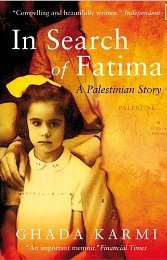
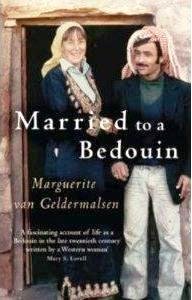
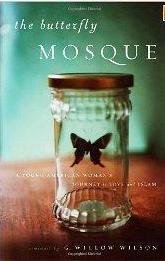
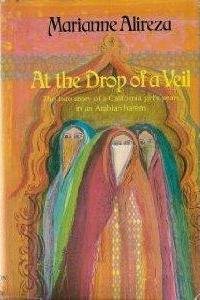
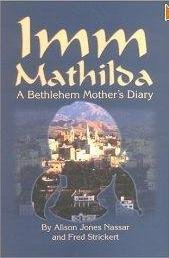 Imm Mathilda: A Bethlehem Mother’s Diary
Imm Mathilda: A Bethlehem Mother’s Diary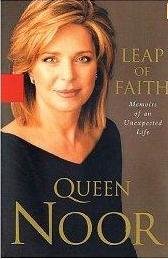
 Holly S. Warah shares her zeal
Holly S. Warah shares her zeal